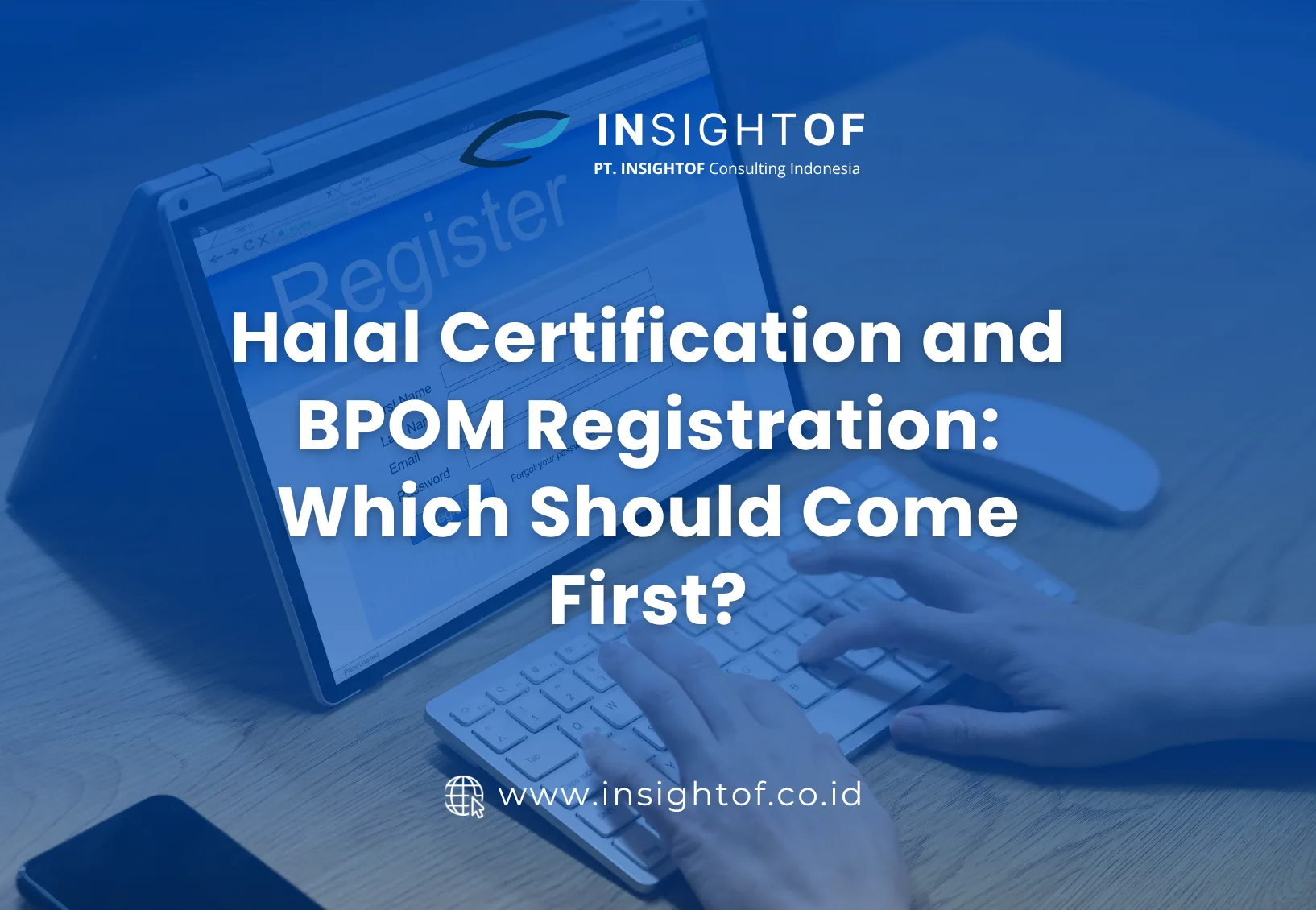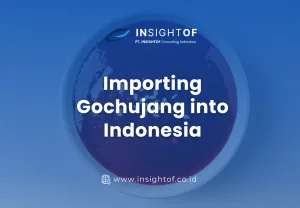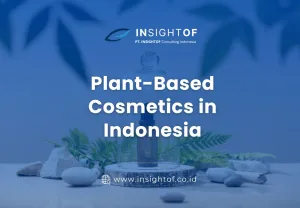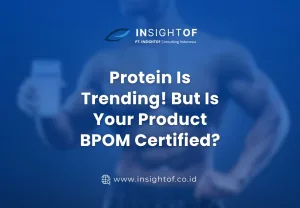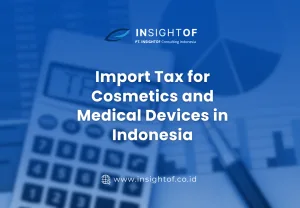As a Muslim-majority country, Indonesia requires all food and beverage products that are imported, distributed, and traded in the market to be halal-certified . At the same time, BPOM (Indonesia’s National Agency of Drug and Food Control) mandates that all imported products must obtain a distribution permit (ML number for food) to ensure safety and compliance with national standards. These two processes are independent but both mandatory before the product can be marketed. Here’s a complete breakdown of the roles, requirements, updated regulations, and strategy for handling halal certification and BPOM registration for imported products.
Role and Requirements of BPOM Registration for Imported Products
BPOM ensures the safety, quality, and labeling compliance of food products. For imported food, BPOM issues a distribution permit (ML number). Based on BPOM Regulation No. 27/2017 (Food Registration), the application is done online through BPOM’s system. Importers must prepare documents such as:
- Tax ID (NPWP) and import licenses (SIUP/API or API-U/K) registered under the importer’s company .
- Audit recommendation for distribution facilities (PSB) issued by the local BPOM office .
- Letter of Appointment (LOA) from the foreign manufacturer or principal, legalized by a notary or Indonesian embassy abroad .
- Quality certificates (GMP, HACCP, or ISO 22000) from the foreign manufacturer as proof of quality assurance .
After collecting these documents, importers upload product data (formulation, production process, label design, nutrition facts, and ingredient specifications) to BPOM’s e-Reg system. BPOM may request product samples for lab testing. If approved, a distribution permit (ML number) is issued and must be printed on the packaging.
Role and Requirements of Halal Certification for Imported Products
BPJPH (Halal Product Assurance Agency under the Ministry of Religious Affairs) handles halal certification. According to Law No. 33/2014 on Halal Product Assurance, all imported food products must be halal-certified before being distributed . If the product already has a halal certificate from its origin country, issued by a foreign halal body recognized through a Mutual Recognition Agreement (MRA) with BPJPH, the importer only needs to register it via BPJPH’s Sihalal system (ptsp.halal.go.id). This is known as the Registration of Foreign Halal Certificates (RSHLN) . If no MRA exists, the importer must go through full halal certification in Indonesia through a domestic Halal Inspection Body (LPH).
Key required documents for halal certification of imported products include :
- Application letter and LOA from the foreign manufacturer to the local importer.
- Business Identification Number (NIB) of the importing company.
- Foreign halal certificate of the product, legalized by the Indonesian embassy or via Apostille (if from an Apostille Convention country).
- Product list including HS codes.
- Statement of document authenticity signed by the applicant.
All documents must be submitted via the Sihalal portal. Once verified, BPJPH issues a registration number for the halal certificate. The process assures the product’s compliance with Islamic law and is approved by the Fatwa Commission of the Indonesian Ulema Council (MUI).
Latest Regulations (BPOM & BPJPH)
These processes are based on the following current regulations:
- Law No. 33/2014 on Halal Product Assurance – mandates that all imported food must be halal . Article 4 affirms this requirement, and Article 47 allows recognition of foreign halal certificates if issued by an MRA-recognized body, provided they are registered in Indonesia .
- Government Regulation No. 39/2021 – outlines halal certification mechanisms, including Article 127, which requires registration of foreign halal certificates before circulation .
- Government Regulation No. 42/2024 – sets phased deadlines for mandatory halal certification. For food and beverage products, the first phase ends on October 17, 2024 , meaning that starting October 18, 2024, all such products must be halal certified.
- BPOM Regulation No. 27/2017 – technical guideline for food and beverage registration under BPOM .
- Presidential Regulation No. 6/2023 – covers halal certification specifically for medicines, biological products, and medical devices, also relevant to supplements.
Based on these rules, starting October 18, 2024, no food or beverage product (unless exempted) may be distributed in Indonesia without halal certification. Violations can result in product withdrawal, permit revocation, or administrative sanctions.
Which Comes First: Halal Certification or BPOM Registration?

Both processes are independent and mandatory. There’s no fixed order required by regulation. BPOM ensures product safety and legal compliance, while halal certification ensures Islamic law compliance . For Indonesia’s Muslim consumer base, both are equally important for market acceptance .
In practice, many companies handle BPOM and halal certification in parallel to save time. Since both processes require similar data (ingredients, formulation, factory audits, etc.), processing them simultaneously reduces redundancy. If sequencing is unavoidable, note that BPOM registration can be more complex and lengthy (e.g., due to lab testing), whereas halal certification duration is capped at 21–31 working days by law . Neither process requires the other to be completed first: BPOM does not require a halal certificate before issuing permits, and halal registration does not require BPOM approval. Both must simply be completed before product launch.
Estimated Timeline, Challenges, and Tips
Halal certification is now guaranteed by the Job Creation Law to finish within 21 working days . For imported products, this may be extended to 31 working days (an additional 15-day allowance) .
BPOM registration is more variable, ranging from a few weeks to several months, depending on the product category and document readiness.
Common challenges include inconsistent document formats (requiring Indonesian or English), legalization of foreign documents, and sample shipment. For halal, the main issue is often legalization of the foreign certificate. For BPOM, common problems include incomplete label information or lack of supporting import licenses (e.g., expired NIB or API).
Tips for efficient processing:
- Prepare comprehensive documents early, including sworn translations of foreign certificates, full product specs, and Indonesian-language labels.
- Process both registrations in parallel by first registering in OSS to obtain NIB, then creating accounts in BPOM’s e-Reg and Sihalal systems.
- Use a local representative or consultant experienced with BPOM and BPJPH requirements.
- Monitor deadlines closely, including application status and renewal periods (e.g., halal certificates should be renewed no later than 3 months before expiry ).
- Allocate buffer time for potential revisions or lab testing.
By understanding the requirements and latest regulations from BPOM and BPJPH, importers can streamline the process and ensure their products are market-ready in Indonesia. In short, there’s no shortcut – both halal certification and BPOM registration are mandatory, but managing them simultaneously with a solid plan will speed up your product launch.

